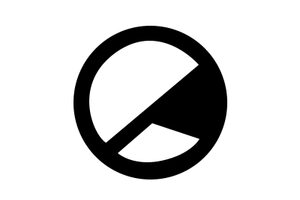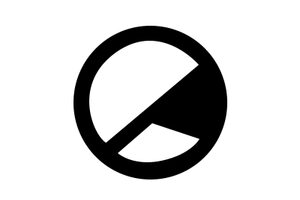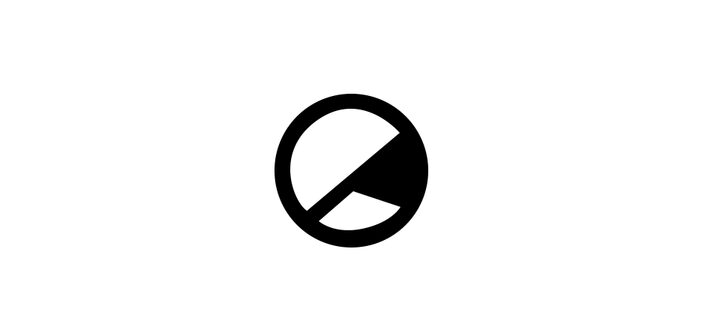Setting off from London at an ungodly hour of the morning, I traveled down to Brighton a few Sundays ago to see The Holly Kane Experiment; an independent-made thriller by Father-Son team Mick and Tom Sands (my review of which you can read here). Somehow, despite the post-strike chaos on the Brighton line, I made it to the lovely Dukes at Komedia Theatre in time for the screening. Afterwards – milling about in the lobby – I got a chance to chat with Tom, the film’s director. Later on we were joined by his dad Mick, who penned its screenplay. We began our chat on the subject of The Edge’s first ever On Set With article, for which writer Isaac Macpherson joined the cast and crew on the set of The Holly Kane Experiment, and reported his findings thereof…

Image via Substantial Films
So, Isaac came over. Where were you at that point?
Tom: We were shooting one of the lab scenes I think, we had a very quick chat because we were so short of time. It was a very stressful shoot; the main problem was that we had about seventy locations and we had seventeen days to shoot it! That essentially means that you have to move the whole crew and all the equipment three times a day, sometimes more. So after setting up the lighting and everything else, the actual shooting time would be very limited. Phil, who was the assistant director as well as the producer, would always be saying “right, ten minutes… five minutes… shoot!” Then we’d just lump it out and run to the next location. But I think as a result of that the film seems to skip along, because the background’s always changing and it feels like it’s got pace. I think it was worth it even though it was tough.
How did you end up with Kirsty Averton for the lead role?
T: I have a casting director that I work with called Matt Western, and we made the decision quite early on to try and get someone with prestige and a history of acting for Marvin, but for Dennis and Holly we wanted to cast the net a bit wider and find new talent. I think we did four days of casting in London, so we saw a lot of people, and she was the best one. Luckily for us she wanted to do it. I remember when she came in, she looked like Holly. She’s great because she changes from scene to scene; she looks very different, which is great. She was lovely to work with and very well prepared. Obviously all the actors had to be on it because we had a very limited number of takes and I think she nailed it. It’s a very tough role.
What was it that led you to drop out of film school and make your own way in documentary?
T: Well I’ve been making my crappy little films and music videos since I was about sixteen or seventeen. I decided not to go to university; I had a place, and from my family and teachers there was a big push for me to go to uni, but I decided not to do that. I took a gap year, wrote a couple of screenplays and then got a place at the Metropolitan film school in Ealing. But that was way too expensive for me; it was almost £20,000 for one year I think. They offered me a scholarship but it was five grand off so I ended up in Brighton film school which was a lot cheaper. I went to the first lesson and I knew immediately that it just wasn’t going to work out; some old guy just talking in front of the class. Not to sound cocky but I knew most of the stuff he was talking about because it was all very technical. I got my money’s worth by borrowing kit the rest of the year. I didn’t really go to any other lessons; I only went for the first two weeks but still ended up graduating.
You got a kind of honourary graduation then?
T: No I just think they didn’t realise that I’d stopped going!
[Laughs] So you snuck out under the radar?
T: I just stopped going. I’d already paid my tuition, so I nicked all the kit and just started making documentaries. The first one I made was with my friend Ramsey; it was a called With Or Without You, which was about the male perception of women. That took me to America and introduced me to a lot of cool people. And then off the back of that we had an investment and we made four films. That took about a year and a half and involved travelling all around the world, so I see that as my film school. I was nineteen or twenty and I was directing these documentaries and doing camera work and everything so I learnt a lot more that way.

Image via Substantial Films
Something like the Werner Herzog way of approaching things then; on the fly…
T: Yeah, I don’t actually learn very well unless I can go and mess it up. Failing is very important. I was doing lots of corporate stuff, doing music videos and a couple of little commercials. Then Haydn, who’s a DoP [Director of Photography], was telling me and Mick to make a feature; to do it for nothing. He eventually annoyed us so much that we decided to do it, and that was a film called Backtrack; which has been re-titled Nazi Vengeance much to our disappointment. Making that was a baptism of fire; it was heavy. When we started we didn’t know what we were doing at all but we made it and we took it all the way through; we sold it in five or six territories. So we’ve been through the whole procedure. Although it’s kind of unfortunate because the film was re-packaged and re-titled as a slasher horror, which it isn’t. It’s a quaint little British horror that goes nasty. So that’s kind of a shame, but we know how the system works now, so with this film we can be in charge of it. We know how we want to sell it and how we want people to see it. With The Holly Kane Experiment, we tried to develop some bigger projects in-between but ultimately we settled on it because it suits the low budget, but it’s also quite high brow. Mick and I have been working on that for five or six years so it’s been nice to see that come off. A week tomorrow I start shooting my next film which is called Three Acts, and that’s a drama comedy, still with a very much psychological element about an actor with multiple personality disorder. That’s a five week shoot starting next Monday so we’ll see what happens.
At this point, Mick came over to join us. After establishing that their relationship was indeed that of Father-Son, I asked Tom about whether that had anything to do with his career choice…
Would you say it was the parental influence of your dad that made you want to become a filmmaker?
T: I don’t know… I was submerged in film from a young age but I don’t know if that’s the reason, [to Mick]what do you think?
Mick: There must’ve been something there anyway. I shared my passion with him but he sucked it all up immediately. There’s my little story about when he was five; I thought then it was time to watch Star Wars. I remember he fit perfectly in my armpit (gesturing under his arm) and he didn’t need any encouragement.
So you started out in advertising, what was it that facilitated your move into screenplays and that side of things?
M: I always wanted to do that. I wrote a novel when I was in my early teens, and so I always wanted to tell stories. That was the only interesting thing about advertising, that you tell small stories. So I just kept writing and trying to sell things. I made a lot of near misses. In the end you’ve just got to do it yourself, so I did it that way.
The Road to Ashvem is an upcoming project of yours. Could you tell me what the inspiration was behind the Indian setting?
T: On my gap year I went travelling to India and fell in love with the place. But it was also the idea of travelling and how that makes you confront yourself. So the idea was to do a romantic comedy which was made up of two separate stories of self-acceptance. That was my story, and then I worked with Mick to write the screenplay. That went through many many drafts. And that’s another way which we work together. On The Holly Kane Experiment, Backtrack and Three Acts it was Mick’s screenplay which I then directed. But with The Road to Ashvem and another film we’ve got in development, which is called Thanatos, they’re both my stories which we then worked on together to develop.

Image via Substantial Films
Very nice. How did you land Nicky Henson for the role of Marvin Greenslade?
T: Well that was Matt Western again, he somehow got it to Nicky’s agent without me realising. So it was quite a luxury in that when Matt said “do you want to have lunch with this guy?” he’d already read it and expressed interest. For me it was quite a fun meeting because I got to go and make my mind up about him. Usually at those kind of meetings it’s both parties deciding whether they want to do it…
M: And also at that level you have to make an offer, then the meeting happens afterwards.
T: Yeah. It was clear that he liked the script, and when I met him he was brilliant; the most funny and charming guy, and he was great to work with. So it was a brilliant decision from Matt Western to try and set that up.
The casting was excellent I thought. What was the name of the girl who played Jeannie?
T: Lindsay Campbell; she was great. She’s done some theatre recently and I think she’s had some very good reviews from it. They were all great to work with as well.
And what was atmosphere like on set?
T: Stress! [laughs]
M: Very long days. They were fifteen or sixteen hour days… [to Tom]how often?
T: Most days, for us anyway. The atmosphere was good. There was good camaraderie, but it was very hard.
M: And there was a buzz, but it was all kind of desperate underneath that because there was no fallback. There wasn’t the money to reshoot; that was the long hours, because we had to stay until it was finished. And not a lot of sleep really was there?
T: No, not a lot of sleep!
I can imagine that would’ve been quite intense. There’s a lot of complex scenarios to pull off…
T: Yeah it’s not like two people talking in a room. The dinner scenes are but there’s a lot of running around; a lot of complex action. And some of the locations weren’t sorted out when we started shooting, so there was still this behind the scenes work going on as we were making it. Most of us were staying in one house as well; so the DIT station with the rushes was in one corner and then there was a bed in the other corner. There were a lot of people in one room.
M: Tom and I were in the sitting room; he had a sofa-bed and I had a mattress. Then everyday they would move the mattress and put costume and make-up there, and chuck all of my stuff into the corner. I didn’t have a room in the Hilton or anything like that!
Nothing quite so glamorous! Richard Morson’s score is brilliant, how did you end up working with him?
T: He did the music for my last one [Backtrack], and once I find someone I like I tend to use them again. Phil, Mick, Haydn, Rich… I like to work with the same people because I think you develop as a group.
M: The team!
T: Yeah it’s the team, isn’t it? I think that’s important, you want to build a team.
Are you working with the same team on Three Acts and The Road to Ashvem as well?
T: Pretty much. The production designer and costume designer have changed, but most people who could do it dates-wise we’ve brought back.

Image via Substantial Films
Great. Has The Holly Kane Experiment been making the rounds on the festival circuit?
T: That process has started. We only finished the film about six weeks ago so it’s all very fresh. We’ve started the festival approach and we’re in talk with distributors already. It’s has pretty good reactions so far. But it all takes time, so we’ve got to wait a few months at least to see where it settles. But we’re hoping for some pretty good festival showings, and some news on distribution fairly soon, and then it’s a few months. Like I’ve said the reaction’s been good, so I hope it’ll survive.
The editing seems to me to have been such a crucial part of this film because it’s such an intense edit, and it really draws you in, in a visceral way. Were you spending hours and hours in the editing room? And compared with Backtrack, was it more of an intense edit?
T: It was more of an intense edit yeah. The first assemble was two hours and forty minutes, and from that point we had to cut an hour out. And that bit was very intense. I’m living in London at the moment and I commuted down [to Brighton]for a month. We would do long days, but before that there was probably two or three months of Phil doing edits, sending them to me, and going through the process of review. It got to the point where we were having to fine-tune so hard that I came down everyday for a month. In that month we slogged it out and got it down to one hour thirty-five. Then we decided we’d gone to far and put a few scenes back, because it has to draw you in. If you chuck too much out it doesn’t have that hypnotic tension.
Well exactly. So many of the great films were initially slaughtered because the edit was all wrong and it had been cut too much…
T: It’s so important.
M: At least we didn’t have a studio edit afterwards.
T: Exactly, yeah.
At that moment the chaps realised that they had to get going for a post-screening cast and crew lunch; their tummies a-rumblin’ no doubt. So I thanked them for their time, congratulated them on the film, and said a pleasant farewell to the Father-Son duo.
The Holly Kane Experiment (2016), directed by Tom Sands, is pending distribution, Certificate TBC




